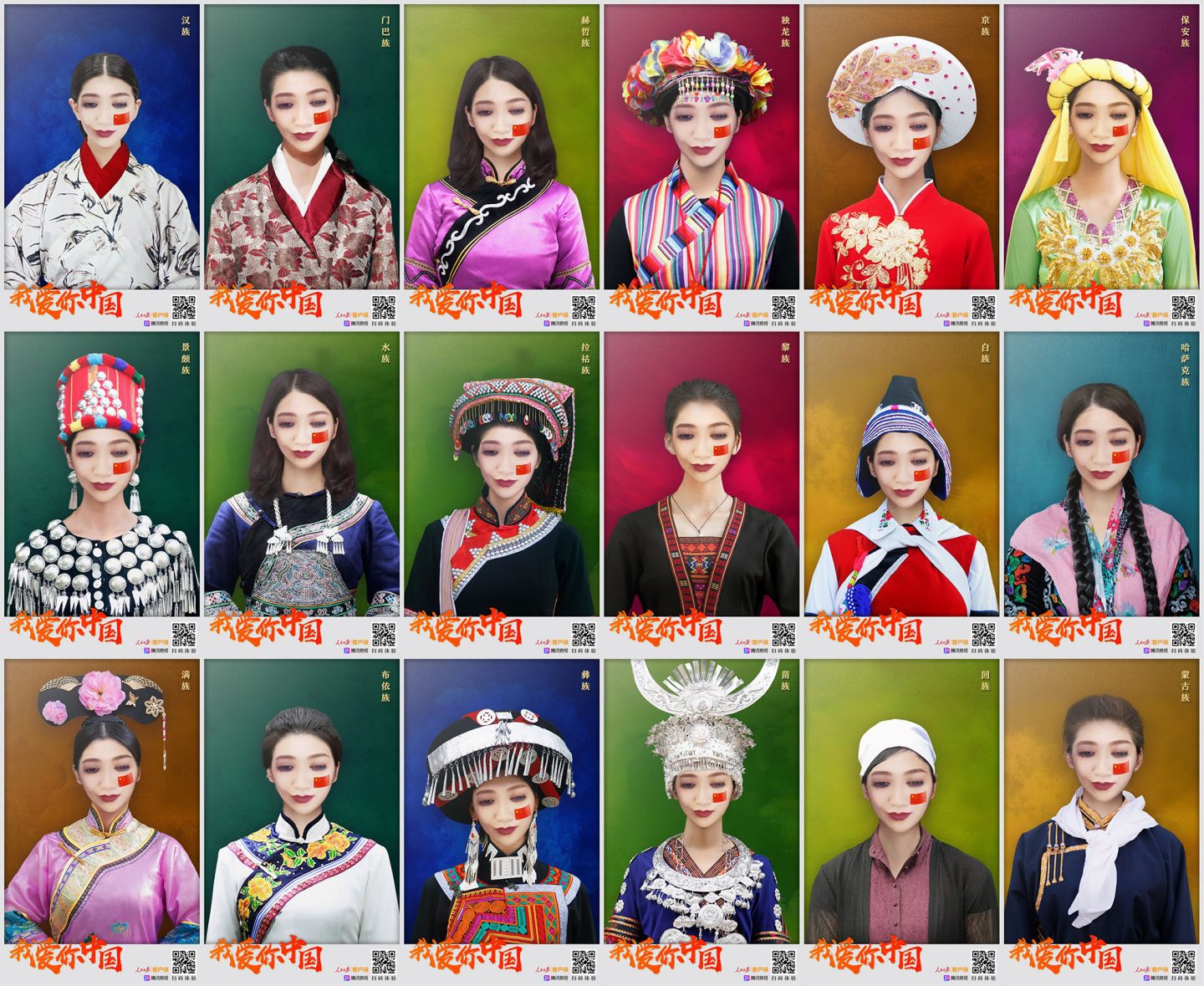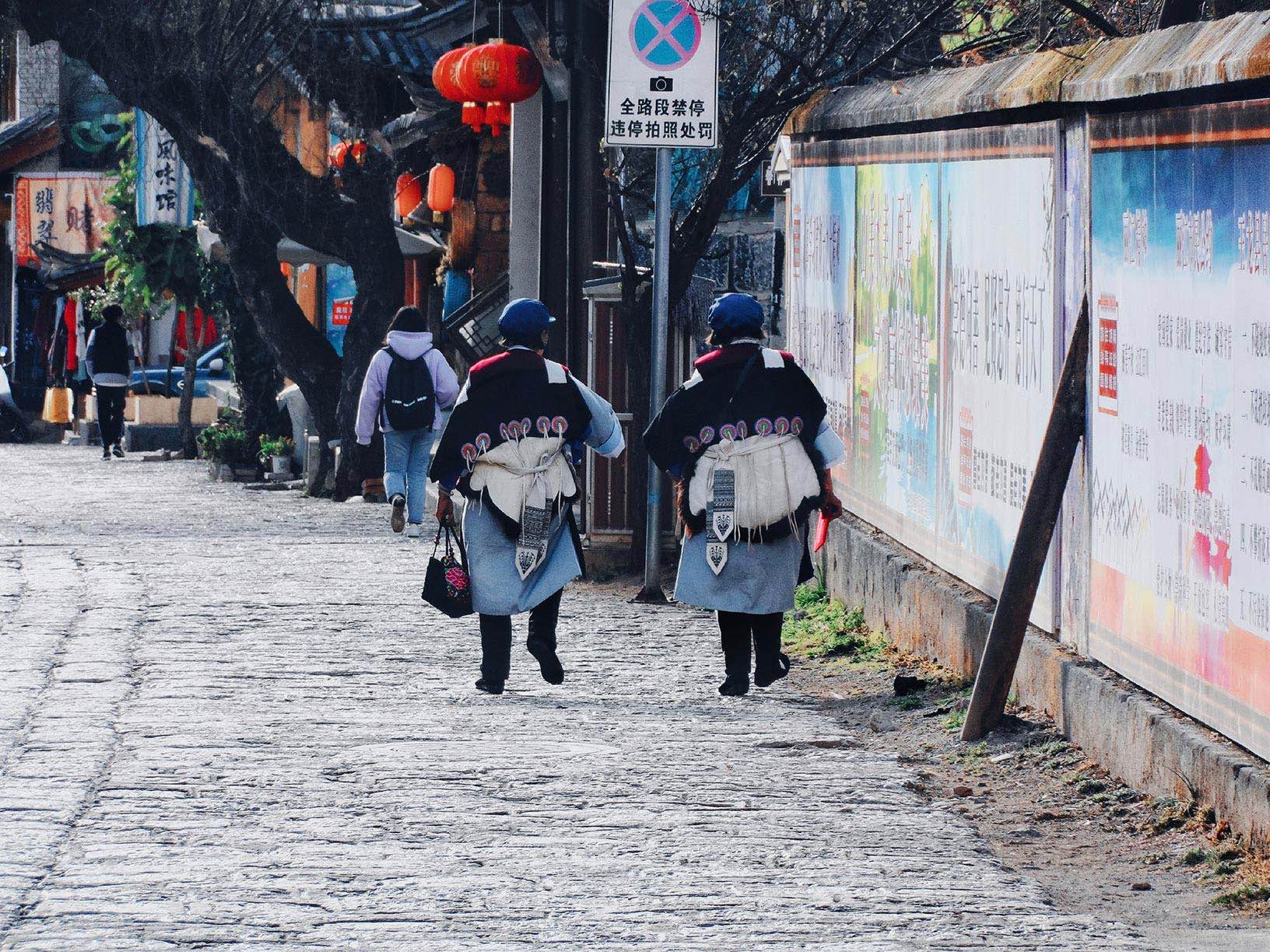
There are 56 officially recognised ethnic groups in China. One group, Han Chinese, counts towards the majority of the Chinese population – over 90%. The other 55 are ethnic minorities in China, counting for the remainder. Although I am a foreigner of Chinese descent, I believe I am of Han Chinese
Whilst going to China to see one of the wonders of the world should be on everyone’s bucket list, I would highly recommend everyone to travel deeper. When people think of Chinese culture, everyone would most likely automatically think of the typical culture you see, experience and learn in today’s society, both within and outside of China. The majority of the traditional culture was established during the Han Dynasty and has evolved since. Other groups have also contributed to shaping it.
These 55 ethnic minorities have their own traditions, customs and rituals, language (including writing system), religious beliefs etc. Some groups are now more integrated with the Han local customs and have lost or are losing their unique culture. Not only that, there’s a lot of languages that are in danger of being extinct. Groups from neighbouring countries such as Russians, Koreans, Tajiks, Kazakhs, Uzbeks, Mongolians are also classified amongst the list of 56 recognised groups.
Being exposed to them will give you a deeper insight and the opportunity to see another side to China. Thus, opening your horizons. There some highly densely populated ethnic minority areas, some are easily accessible thanks to tourism whilst others aren’t; Some you will need a special permit (different to a Chinese visa), whilst some are restricted and forbids all foreigners and or Chinese citizens.

When you travel around, you will find a lot of areas had been developed to fit the tourism industry. It does give you a taste into the village’s culture and lifestyle but I feel it does lose its authentic flair.
A village in Lijiang, Yunnan had left a deep impression on me as it wasn’t brimming with tourism. Let’s say it’s as authentic as it gets. Whilst a friend and I were exploring this village, a local had invited us to sit down and have tea. There was a language barrier as he wasn’t able to converse in Mandarin, only in his native ethnic language, Naxi. He wasn’t able to write nor type in Chinese. I’m not 100% sure on his reading ability though. However, we had used hand gestures to communicate. He had shown us videos and photos of his lovely family and I still remember he loved to dance. Using a smartphone was still relatively new to him and it was adorable to watch him use it. This whole experience was tremendously heartwarming.
Being an ethnic minority myself in the UK, I was naive to think that there wasn’t a thing such as Chinese Muslims. I had caught my first glimpse when I was in Xi’an and let’s just say, MIND BLOWN. Then I had the opportunity to travel around north-west China which had widened my perspectives further. On a tour, our driver is of Hui origin and was telling us about his culture, Islam, answering all of our questions.
These experiences proves the beauty of learning and understanding new cultures, not only targeted to the ethnic minorities in China. The number one advice I would give to everyone is to keep an open mind.
You can read more about the ethnic groups below:
Travel China Guide
China Highlights
Having the largest population among all ethnic minority groups in China, about 16.17 million intotal, most of the Zhuang people live in the Guangxi Zhuang Autonomous Region, some seen in Yunnan, Guangdong and Guizhou provinces.
Their vast homeland is also called “the sea of songs.”All of them are good singers and on festivals, they sing to communicate and to express themselves. They hold a singing festival every year, called”ge xu,”attended by hundreds of people. The festival has day singing and night singing, both following age-old rules. The day singing is held outdoor, by jade mounts and rivers, attended mostly by young people with a hope to find a date. The night singing, however, is held inside the village, meant to teach the younger generation the knowledge about farming, local life and history.
The singing festival falls twice a year, in spring and autumn, but the one on the third day of the third month by Chinese lunar calendar is much larger. By their custom, the third day of the third month is an occasion to mourn the dead, also an occasion for the old to tell the young their family history and rules. After the lecture,a picnic follows, then singing and amusement. This day singing has oecome a local holiday with well-organized festivities attended by the whole village.
Every year, before this festival, every one is busy preparing, five-color glue-rice and colorfuleggs made in each household and beautiful brocade balls made by young girls. On the festival, every one is in his/her best for a ceremony to memorize their singing goddess “Third Sister Liu,”in the hope to get her blessing and a better singing skill. To them, the sister was an epitome of sincerity, beauty, love, wisdom and capability. After the ceremony, young people release their voice into duet singing,”talking”to the opposite sex to find a date.
Besides exciting Zhuang Opera performances, small but enjoyable commercial activities add much festivity to the occasion. However, the most fruitful in the wake of a singing festival is of course the happy marriage lock forged between those in love.
The Zhuang women are smart and handy. Because of them, the local Zhuang brocade enjoys an equal fame with the other three best kinds in China. Unique in making and over 1,000 years old, Zhuang brocade features very bright colors and superb skills, perfect for making clothes, quilt or hand oags.
The Zhuang people prefer raised wooden houses by mounts and rivers. Due to the local rainy weather, their houses sit on one-meter-high wood stakes, floored inside with boards. The space below the house is to keep domestic animals and also serves as storage. These raised wooden houses were a marvelous invention from their ancestors, perfectly good for local environments.
Reference website: